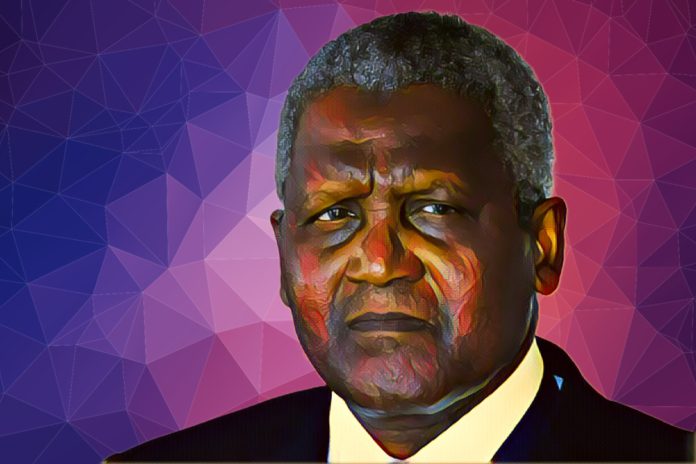Aliko Dangote, the prominent Nigerian businessman and President of Dangote Group, has offered to sell his flagship Dangote Refinery to the Nigerian National Petroleum Corporation Limited (NNPCL). This proposal comes amid growing accusations of monopolistic practices in Nigeria’s fuel industry. Dangote’s move is intended to resolve disputes over his company’s dominance and address concerns about the refinery’s impact on market competition.
In a recent interview with Premium Times, Dangote expressed his readiness to divest from the refinery to counter allegations that he is monopolizing the Nigerian fuel market. According to Dangote, transferring ownership to NNPC would eliminate the claims of monopoly against him.
“Let them (NNPCL) buy me out and run the refinery the best way they can,” Dangote stated. “They have labelled me a monopolist. That’s an incorrect and unfair allegation, but it’s OK. If they buy me out, their so-called monopolist would be out of the way.”
Dangote also highlighted the ongoing fuel crisis in Nigeria, which has persisted since the 1970s. He suggested that his refinery could play a significant role in addressing this problem. However, he noted that some parties seem uncomfortable with his involvement in the industry. By selling the refinery to NNPC, he aims to ensure that the country benefits from the facility without any perceived conflicts of interest.
The offer to sell comes in response to claims made by Farouk Ahmed, the Chief Executive Officer of the Nigerian Midstream and Downstream Petroleum Regulatory Authority (NMDPRA). Ahmed had alleged that the Dangote Refinery requested the regulator halt the issuance of import licenses to other marketers. This move, according to Ahmed, would make Dangote’s refinery the sole supplier of fuel in Nigeria, raising concerns about market monopoly and energy security.
Ahmed stated, “We cannot rely heavily on one refinery to feed the nation, because Dangote is requesting that we suspend or stop importation of all petroleum products, especially AGO (automotive gas oil), and direct all marketers to the refinery. That is not good for the nation in terms of energy security. And that is not good for the market.”
Further complicating matters, Ahmed criticized the quality of products from the Dangote refinery. He claimed that the refinery’s diesel fuel, or AGO, has higher levels of sulfur than the West African standard of 50 parts per million (ppm). According to Ahmed, Dangote’s refinery and some smaller modular refineries produce diesel with sulfur levels between 650 and 1,200 ppm, which is inferior to imported fuels.
Dangote responded to these claims by reflecting on the challenges his refinery has faced. He noted that his friends and associates had warned him about the risks of investing heavily in Nigeria’s economy. Despite these warnings, Dangote remained committed to his project, driven by a desire to contribute positively to his country.
“As you probably know, I am 67 years old,” Dangote said. “In less than three years, I will be 70. I need very little to live the rest of my life. I can’t take the refinery or any other property or asset to my grave. Everything I do is in the interest of my country.”
He reiterated his willingness to sell the refinery, emphasizing that this move could lead to better quality products and job creation for Nigeria. Dangote’s offer reflects his commitment to addressing the fuel supply issues in the country and ensuring that his investments benefit the Nigerian economy.
The Dangote Refinery, which began operations last year after a lengthy construction period, is one of the largest refineries in the world, with a capacity to process 650,000 barrels of oil per day. The refinery was built with the aim of reducing Nigeria’s dependence on imported fuel and conserving foreign exchange. However, it has faced significant scrutiny and controversy since its inception.
By proposing to sell the refinery to NNPC, Dangote hopes to resolve ongoing disputes and pave the way for more competitive practices in Nigeria’s fuel market. The move could also help address the criticisms related to the refinery’s product quality and monopoly allegations.



